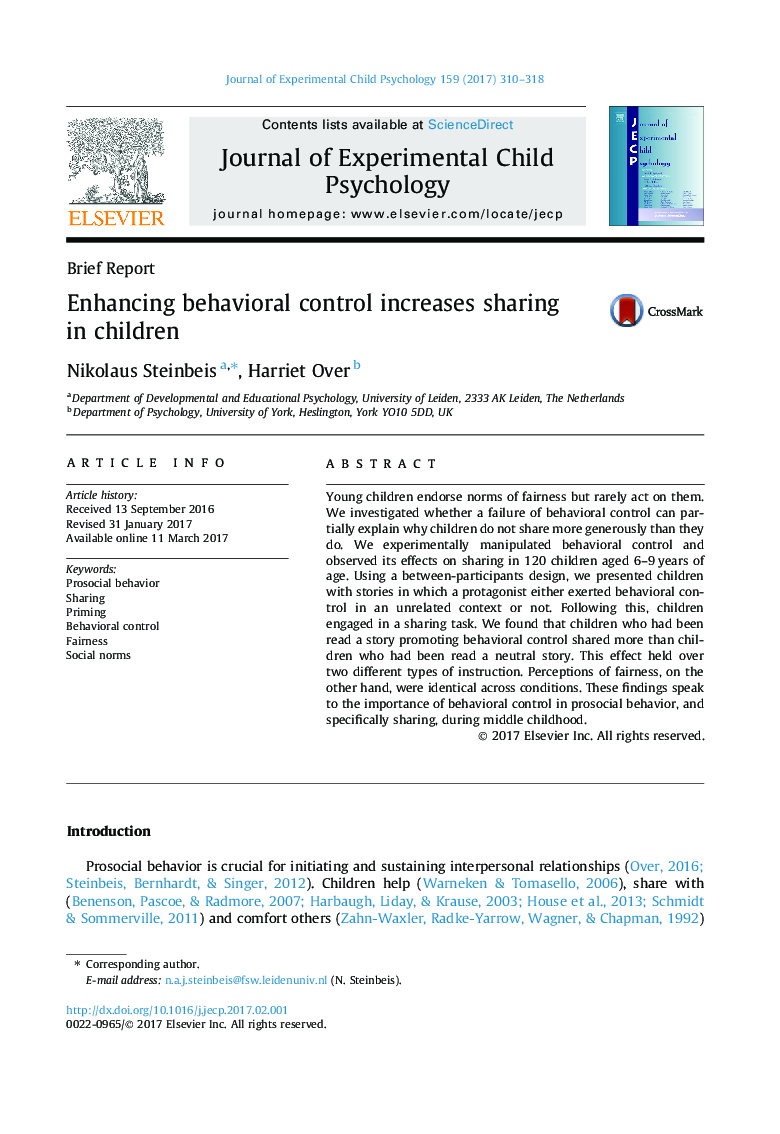| Article ID | Journal | Published Year | Pages | File Type |
|---|---|---|---|---|
| 5039995 | Journal of Experimental Child Psychology | 2017 | 9 Pages |
â¢Priming behavioral control increases subsequent sharing but leaves fairness perception and emotions unchanged.â¢Priming effects extend over several sharing contexts speaking to a pervasiveness of the effect.â¢Behavioral control plays a key role in altruistic behavior in children.
Young children endorse norms of fairness but rarely act on them. We investigated whether a failure of behavioral control can partially explain why children do not share more generously than they do. We experimentally manipulated behavioral control and observed its effects on sharing in 120 children aged 6-9Â years of age. Using a between-participants design, we presented children with stories in which a protagonist either exerted behavioral control in an unrelated context or not. Following this, children engaged in a sharing task. We found that children who had been read a story promoting behavioral control shared more than children who had been read a neutral story. This effect held over two different types of instruction. Perceptions of fairness, on the other hand, were identical across conditions. These findings speak to the importance of behavioral control in prosocial behavior, and specifically sharing, during middle childhood.
